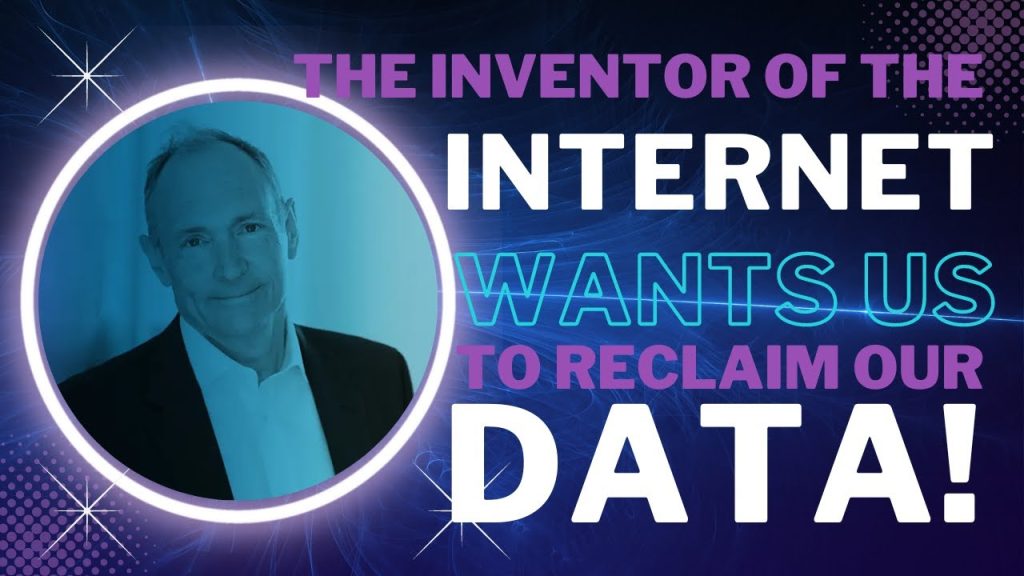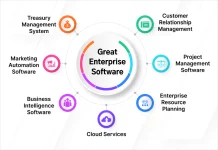
It’s time for media outlets to do a better job when they talk about ‘your data,’ especially if they are featuring a new service to protect personal data. Journalists and data companies blend together a bunch of concepts that don’t actually shed light for consumers on what’s important.
When using the web in everyday life, ‘your data’ is not something you can ever get back or ‘reclaim,’ whatever Facebook or any company promises you about how you can ‘control your data.’
‘Your data’ is actually the analysis of everything you do on the web, every page you go to and transaction you do. For every website you go to that has a Twitter logo, Facebook logo, Pinterest logo, etc., that logo has sent data back to that company with a pixel beacon about your visit to that page to be analyzed to create a profile. Companies think of that data as ‘our data’ and they’re not going to give it back to you.
Then, all that data is rolled up and then cross-referenced and further analyzed with a bunch of other data collected from you, such as all your loyalty card purchases sold by data brokers. An individual consumer profile is created from all this, and it’s this data–data about all your data, or your ‘meta data’–that is commercially and politically very valuable that you can never get back.
The companies that used propriety analysis techniques to create this meta data own it and it’s a false premise that you can request it, delete it or ‘get it back’ or ‘reclaim’ it. Sure, you can delete your account, but the meta data profiles stay on the servers to be processed for very targeted advertising–now it’s ‘their data.’
The other type of data we think of and try to keep off the web is ‘private data’, like your name, email address, home address and phone number, date of birth and social security/insurance number, etc. Yes, that can be stolen from you with phishing sites, or major breaches of companies you deal with, like Twitter or Sony or even government services, then used for identity theft.
This is the criminal use of ‘your data’ that most people worry about, thinking that their identity will be stolen, traded on the dark web or between organized crime gangs, credit cards abused, credit rating destroyed resulting in great difficulty getting a loan or mortgage again. That’s very different than the data that is being harvested from you every day you’re on the web, sold to companies by numerous data brokers and analyzed by digital companies, which is all legal.
This Inrupt PODS idea might work for “a situation where you have autonomy, you have control of all your data” for future generations. But for current generations on the web, the data has already been harvested and proprietary meta data created. I guess for future generations, and some current narrow privacy applications for current users, PODS could work.
But they would have to somehow make a very convincing case that PODS couldn’t be exploited or breached like so many major consumer or other ‘secure’ sites we have heard about for over a decade now.
Below you will find the CNN article on which my analysis is based…
StrangeSounds.org has been banned from ad networks and is now entirely reader-supported CLICK HERE TO SUPPORT MY WORK… If you don’t want to use PAYPAL, you can also DONATE with your Debit and Credit Cards through my DONOR BOX Page. YOU WILL RECEIVE A GEMSTONE IF YOU GIVE 50$ OR MORE! Thank you for your help!
You should also join my newsletter to get DAILY, INTERESTING AND AMAZING NEWS, VIDEOS AND PICTURES directly in your mailbox…YOU WILL LOVE IT…
I recommend following Qfiles for videos, podcasts and a wide compilation of alternative news…
The internet has come a long way since Tim Berners-Lee invented the world wide web in 1989. Now, in an era of growing concern over privacy, he believes it’s time for us to reclaim our personal data.
Through their startup Inrupt, Berners-Lee and CEO John Bruce have created the “Solid Pod” — or Personal Online Data Store. It allows people to keep their data in one central place and control which people and applications can access it, rather than having it stored by apps or sites all over the web.
Users can get a Pod from a handful of providers, hosted by web services such as Amazon (AMZN), or run their own server, if they have they the technical know-how. The main attraction to self-hosting is control and privacy, says Berners-Lee.
Not only is user data safe from corporations, and governments, it’s also less likely to be stolen by hackers, Bruce says.
“I think we’ve all come to realize that the value of the web is embodied in the data available on it,” he adds. “In this new world of you looking after your own data, it doesn’t live in big silos that are lucrative targets for attackers.”
Inrupt’s platform is being tested by the UK’s National Health Service and by the government of the Belgian region of Flanders. The latter plans to use Pods to let its citizens choose how to share their personal data.
In October, the BBC introduced an experimental service using Pods for “watch parties,” where multiple friends stream a program at the same time. When the watch party ends, the user can see the data that has been generated, including which program they watched and who else joined, and choose whether to delete or edit the information — or let the BBC use it.
In a blog post, Eleni Sharp, an executive product manager for BBC Research and Development, described it as “a radically different approach to data management.”
Launched in 2017, Inrupt reportedly raised $30 million in December 2021 and Berners-Lee says it will help deliver the next iteration of the web — “Web 3.”
Paul Brody, Global Blockchain Leader at consulting firm Ernst and Young, believes Web 3 could change the way we use the internet. “You’ll hear people talk about Web 3 and decentralization as being very similar in ideas and goals,” he says.
“Owning your own data and really controlling your own commerce infrastructure is something that Web 3 will enable. It will be ultimately really transformational for users.”
Berners-Lee hopes his platform will give control back to internet users.
“I think the public has been concerned about privacy — the fact that these platforms have a huge amount of data, and they abuse it,” he says. “But I think what they’re missing sometimes is the lack of empowerment. You need to get back to a situation where you have autonomy, you have control of all your data.” [CNN]














California to Vancouver BC are next in line 7.5 plus quakes .. The floods after floods it is now paved away for final quake. UK is enemy of Americans and Iranian and world.. We say UK no to boogie man
,no to civil war , we do not want own by new King of UK? Hands of USA please..
Israel Prepares for Military Option Against Iran
Last week it became clear that international patience with Iran over its nuclear program is running out.
This feeling emerged from a meeting of the members of the International Atomic Energy Agency (IAEA) in Vienna.
The governors of 70 IAEA member countries voted in favor of a resolution censuring Iran for its lack of cooperation with the agency.
Only China and Russia voted against the resolution, the first to censure Iran since 2020 when IAEA governors also condemned the Islamic Republic for lack of cooperation with the UN nuclear watchdog.
A few weeks later, Iran backed down and gave the IAEA access to nuclear facilities it wanted to investigate.
https://www.bbc.com/news/topics/cjnwl8q4ggwt Iran news latest BBC UK that created Ayatollahs..
WWB is belong to people of world and is bad that google owns your info indeed?
Breaking News:
https://www.thegatewaypundit.com/2023/01/developing-tsunami-warning-issued-powerful-7-7-magnitude-earthquake-strikes-indonesia/
7.7mag + Tsunami Warning.
OFF TOPIC: A 7.9 just hit Indonesia 2 hours ago!!
We tied. Check time stamp.
?
60 miles deep. Maybe no tsunami?
Wow, poor Indonesia. Beautiful landscapes, but volcanoes and earthquakes. Those folks never get a break.
Hahahaha. Good job!
Its going to take guns to reclaim our Freedoms! Lots and lots of guns!
I suppose you will lead the revolution?
The only thing wrong with the Internet is that Evil people have access to it. Otherwise access to all the information should make us freer from ignorance. But if you have discernment, the info is there.
Yes, in a way you are right. If this video clip were not public access, many people wouldn’t know what an imbecile bozobiden truly is.
https://www.thegatewaypundit.com/2023/01/shot-joe-biden-tells-el-paso-salvation-army-worker-spent-time-secret-service-poland-video/
??
Meh, the world was much better before the internet. Now we are dependent upon it. You have to have an email to participate in life. Rather live on Gilligan’s island with Maryann and Ginger, in the middle of nowhere, with a transistor radio and coconuts.
We have people who have access to massive amounts of info/news and they are still ignorant as hell.
Some use it properly like My Son who knows American History inside and out AND every war/skirmish that has happened in and without of America.
Me…I have used it to learn that 1 Politicians/Company’s/etc all lie about what they do and/or their ‘products’.
AND I have embarrassed my nurse practitioner with my correcting her ‘knowledge’ about Drugs…
I remember we had encyclopedia before internet, and used libraries with card catalogues. It took more effort in those days, but I liked it just fine.
Yes, the internet is what you make of it. I have found it useful too, but like the olden days better. Give me smoking in theaters/elevators, radio basebal games, and a rotary phone. I would do fine. ?